What is a computer?
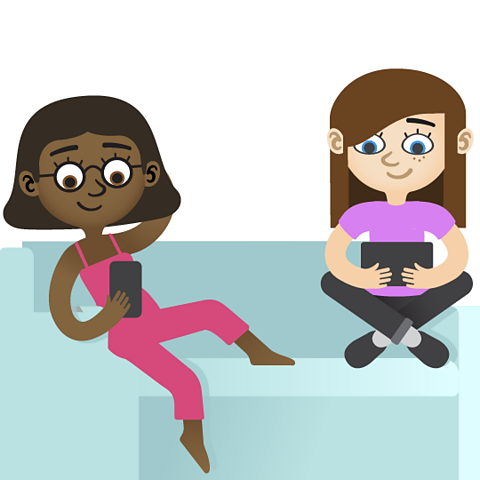
Computers are all around us. They're a big part of many people's day-to-day lives.
A computer is an electronic device which processes, stores and displays information.
Most electronic devices used today contain some sort of computer.
- Desktop computers are thought to be more traditional computers.
- Laptops, tablets and smartphones are portable computers.
- Smartwatches are wearable computers.
- Computers control many household appliances, like washing machines.

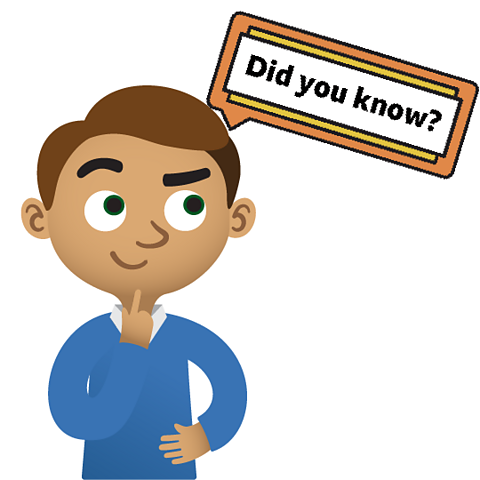
The word computer used to mean a person who performed complex mathematics.
Mary Jackson, Katherine Johnson and Dorothy Vaughan were women who were known as human computers at NASAThe National Aeronautics and Space Administration is responsible for America’s civil space program, aeronautics and space research..
These human computers of Nasa helped to get the first astronauts into space.
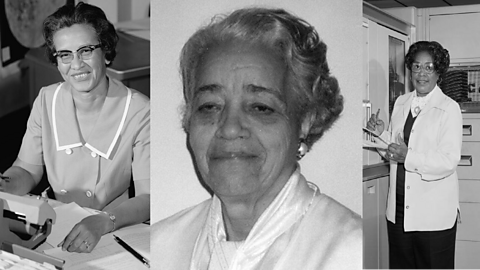 Image source, Nasa
Image source, Nasa
How are computers used in our day-to-day lives?
Computers can be found all around our homes, schools and even in the places where you shop.
-
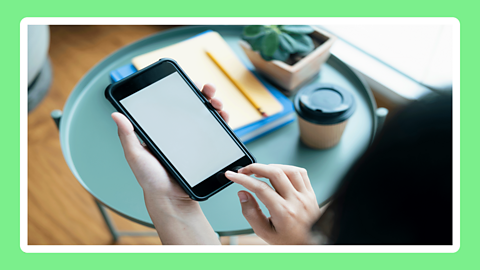
Image caption, Smartphones
Smartphones allow us to send and receive messages and calls. Smartphones have an operating system to make it easy to use and allow us to download and install various applications. Applications might include: games, music, email, social media and calendars.
-
Image caption, Fitness trackers
Electronic fitness trackers help count steps, monitor our heart rate and keep track of our daily activity and exercise. Fitness trackers can help motivate people to exercise more effectively.
-
Image caption, Self checkout machines
Self-checkout machines scan barcodes and make it quicker and easier to pay for shopping. Self-checkout machines are very common in supermarkets.
-
Image caption, Electronic locks
Many schools and workplaces use a system of electronic locks which need either a pin code or swipe card to unlock. Digital locks can be easier to use than key locks, as users don't need to carry keys.
-
Image caption, Cars
Most modern cars have at least one computer inside which monitors emissions and checks that the car is working as it should. Electric cars are like ‘computers on wheels’. Most of their systems are controlled by onboard computers.
1 of 5
How have computers helped to connect us?
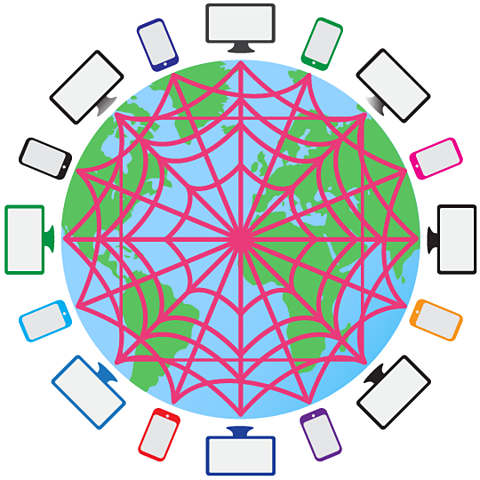
Technology means that we have never been more connected. We can easily connect with family, friends and the people we work with, even when they're on the other side of the world.
Connected technology means that doctors in the UK can help other surgeons all around the world perform life-saving surgery through a video call.
With a computer, you can connect with students from classrooms in different countries, to learn about their culture and community. You can also work on a project with someone without needing to be in the same room.
Computers mean that even if you move away from friends, you can easily stay in touch.

How have computers saved lives?
Computers have helped to change the way we understand the human body.
They have allowed us to analyse and record how our bodies work in more detail than ever before.
Robotic surgeons can complete surgeries that are too complex, or too small for a human to perform.
Some people have a pacemaker fitted, which helps to make sure their heart beats regularly.
Diabetes patients can now wear an insulin monitor on their arm which tells them if their blood sugar is too low or too high. Before these monitors were invented, diabetics used to have to prick their finger to test their blood regularly. The monitors connect to a smartphone to make it easy to get readings.
Many tests for illnesses are completed using computers too.
Can you think of any other life-saving uses of computers?
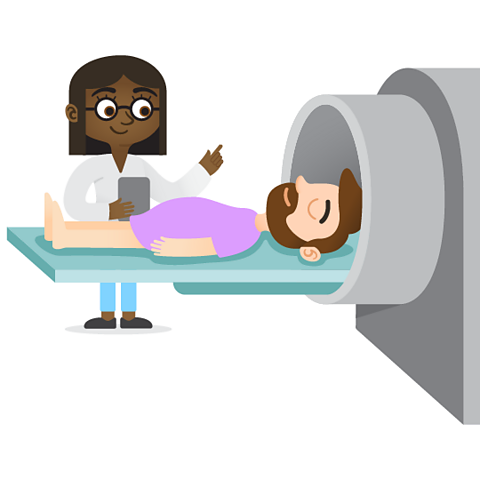
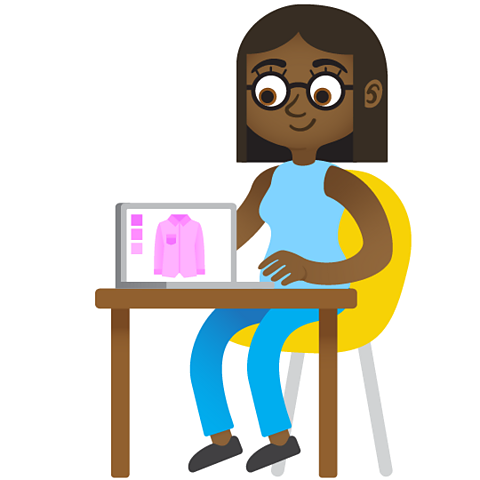
Most careers have some element of digital technology and computers can be found in most workplaces.
It's important that you understand how computers work, as it is likely that you will need to use a computer when you're grown up.

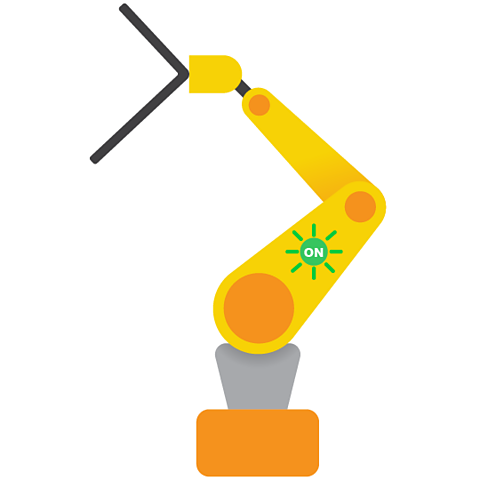
Computers have changed the way the world works. Many jobs that used to be done only by a person have been made much more efficient through the use of technology.
New tools to improve how we work are being developed all the time and technology is constantly changing. Sometimes it can be hard to keep up!
Many highly paid jobs that people do today with computers, didn't exist 20 years ago!
Watch: Creating with computers
Computers can be used creatively to do all kinds of amazing things!
Discover more about creating with computers in this video from BBC Teach:
NARRATION: Computers are brilliant at so many things. They are good at following instructions in a computer program to carry out complicated tasks. They are good at organising and storing data and information and solving number problems. They can do all these things more quickly and accurately than we can, so it’s no wonder that we rely on them so much during our everyday lives.
Computers and digital devices are also helping us to be creative in different ways. To make new kinds of art and music, to design games and share stories, to create, edit and share photos and videos. Computers can help us to make the things that we imagine come to life.
Think about all the books you have at school. Imagine if the author had to write each one out by hand. Authors will write a story on a computer to help them type in the words and edit and arrange them into a finished document. This is called word processing. Authors can then share these documents with editors, who can make changes using an online document folder, that means they can all see the work they are working on and the changes that are being made. When the book is finished the text will be sent, by email, to the publishers to be printed on a digital printer.
Have a look at these animations. The illustrator of these animations may have used a pencil and paper when they first drew their designs, but now they use digital drawing and painting tools and software to create the finished images. Digital pens can draw directly onto tablet touch screens, they act like digital paper. Using this special software for artwork means you can have unlimited colours and tools, and can add layers and combine different images together to make new ones. Plus you can rub out mistakes using an electric eraser.
Now we’re going to look a bit closer to home. When we make these films, yes the one I’m in right now, hello! We have a production team. A key role in this team is the director, who films the live action. They use a digital video camera to film the action. Once they have finished filming, they upload the digital video files to a computer storage drive and then use video editing programs to organise the film clips into the finished film. Any mistakes that the actors make can be cut out of the film to make sure it runs smoothly.
Did you notice the music and sound effects in the background of the film? They may have originally been performed on real instruments in a studio, but it will have been recorded onto a computer using a digital microphone and sound recording software. The editor will then have mixed the music and sound effect elements together into the background tracks you are listening to, using music editing and mixing software and powerful computers.
So, now we have written a book, designed and created an animation, shot a film and composed some music. I’m impressed!
There’s so much more to learn about being creative with computers. I feel inspired, do you? I might try my hand at writing a story, animating the characters and producing my own film! Coming soon to a cinema near you…
Activities
Computing - Dance Mat Typing. gameComputing - Dance Mat Typing
Build and test your computing skills with different levels of touch type challenges

More on Digital literacy
Find out more by working through a topic
-
-
count8 of 12
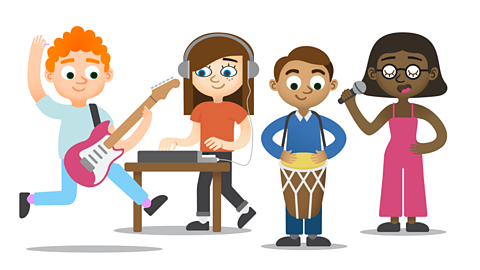
-
-
-
count9 of 12
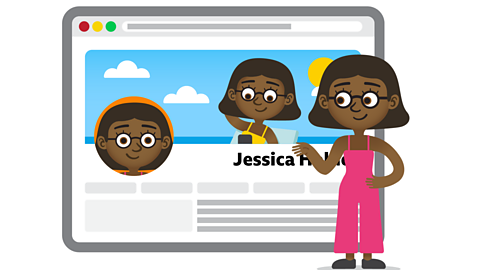
-
-
-
count10 of 12
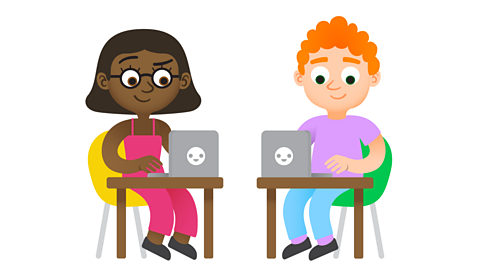
-
-
-
count11 of 12
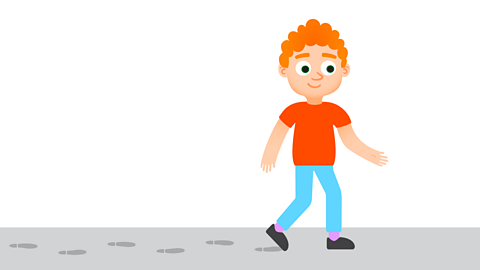
-